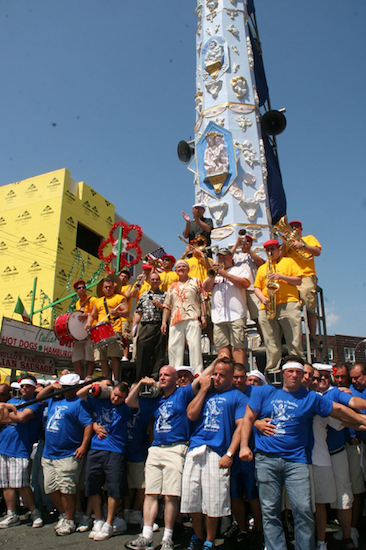Faith In Brooklyn for June 30

Williamsburg Church Kicks Off 127th Annual Famous Giglio Feast
12-Day Celebration Honors Saint Who Returned From Captivity
The much-anticipated annual Giglio Feast at Our Lady of Mount Carmel Church in Williamsburg, which begins on Wednesday, July 9, features a five-story-tall Neapolitan Saint on a tower with a brass band carried on the shoulders of 125 Italian men in Brooklyn.

Brooklyn Boro
View MoreNew York City’s most populous borough, Brooklyn, is home to nearly 2.6 million residents. If Brooklyn were an independent city it would be the fourth largest city in the United States. While Brooklyn has become the epitome of ‘cool and hip’ in recent years, for those that were born here, raised families here and improved communities over the years, Brooklyn has never been ‘uncool’.